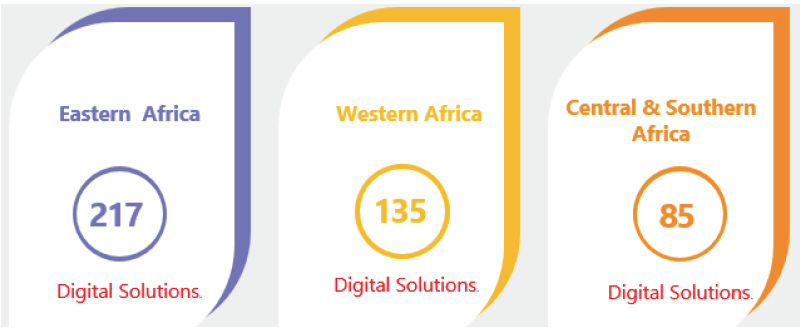According to a recent survey conducted by ACTS, Eastern Africa is leading in the adoption and deployment of digital agricultural technologies in the continent.
Findings of the survey, which sampled 34 producer organizations across 9 African countries, reveal that East Africa leads with 217 digital solutions compared to 135 in Western Africa and 85 in Central and Southern Africa.
Kenya recorded the highest number of solutions deployed in the region, mainly attributed to good mobile connectivity, high mobile penetration rates as well as robust mobile money services.The survey was commissioned by Fairtrade Africa (FTA) to assess the status of digital innovation integration among its certified producer organizations (POs) in Africa.
Findings indicate that digital advisory services are the most developed and deployed digital solutions, followed by agri-finance, marketing and supply chain. These were mainly delivered through short message services (SMS) and interactive voice response (IVR) to smartphone applications, OBD (outbound voice dialing), helplines and USSD (unstructured supplementary service data).
The study found 39 diverse types of digital technologies and solutions used by the POs. About 51% of the solutions adopted are characterized as basic to above basic, which is a step-up from manual or paper-based operations.
Farmers rated increased productivity, improved farming practices as the most important outcomes resulting from adoption of digital solutions, followed by ease of record keeping and increased profit. However, they indicated that difficulty in language and user interface and high cost of the technologies were the main barriers towards adopting digital technologies.

Findings also indicate that at least 32.9% of farmers are using one digital technology or service; male farmers were more likely to adopt digital technologies than their female counterparts.
The study recommends connecting Fairtrade certified POs with identified developers of systems, supporting development of other custom solutions for specific needs, promoting digital solutions that builds trust along the target supply chains and developing strategies to close gender disparities in digitization of agricultural solutions.

